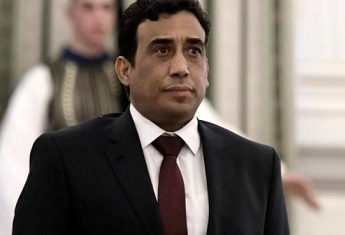
Eight days before Libyans were meant to cast presidential votes, there is utter confusion over the fate of an election that has not yet been formally delayed, but that even an electoral official now says it will be impossible to hold on time.
The planned December 24 vote, along with a parallel election for a new parliament, was meant to help end Libya’s past decade of chaos by installing a political leadership with national legitimacy after years of factional division.
However, the process has been dogged since the start by bitter disputes over the election’s legal basis and fundamental rules, including over the eligibility of deeply divisive front-runners which have never been resolved.
On Saturday, the electoral commission said it would not announce the final list of eligible candidates drawn from the 98 who registered until after legal discussions with the judiciary and parliament.
Amid continued arguments and fears for electoral integrity after major security incidents, Abu Bakr Marada, a member of the elections commission, on Thursday told regional Al-Jazeera television that a December 24 vote was no longer possible.
Few of the Libyans Reuters spoke to on Thursday believed the vote would happen on time, though many expected only a short delay. “It will be postponed for a maximum of three months,” said Ahmed Ali, 43, in Benghazi.
Rival candidates and political factions have been exchanging recriminations, accusing each other of trying to block or manipulate the electoral process for their own advantage.
International powers pushing for elections along with the United Nations (U.N.) have maintained their stance that polls must go ahead, but this week stopped referring to the planned December 24 date in public statements.
Over recent weeks, very large numbers of Libyans have collected their ballot cards and thousands have registered to be parliamentary candidates, apparently signifying widespread popular support for an election.
Tim Eaton of Chatham House, the London think tank, said Libya’s political bodies were not ready to publicly say the vote would not happen for fear of being blamed for its failure.
“It’s pretty clear that the legal wrangling cannot be resolved in the current circumstances,” he said. “No one thinks this is happening on time, but nobody is saying it.” -Reuters





